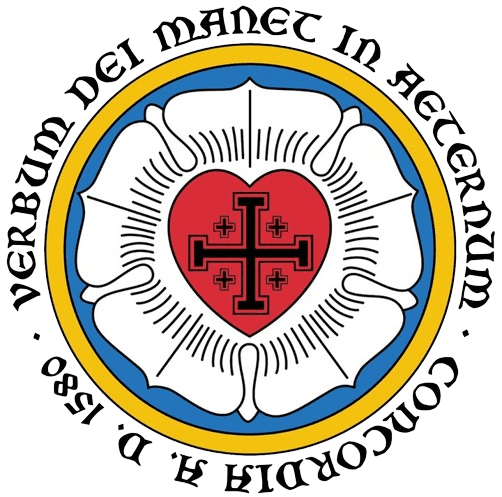1. Who has the power and authority to institute sacraments?
No man has the power and authority to promise grace: this belongs to God alone. But since the sacraments are seals of grace, they must have been instituted and originated by God alone. Hence sacraments which have been instituted without the divine command are no sure tokens of grace, although the people in their simplicity may to some extent be reminded and instructed by them. (Apology, Art. vii.)
2. What are the sacraments generally considered?
The sacraments are usually explained to be: “Rites enjoined by God, and having added to them a divine assurance of grace.” (Apology)
3. Can you not give another definition?
A sacrament is more correctly explained as a holy act instituted by God, consisting of an element or external sign, and of something heavenly; by which act God not only seals the promise of grace, peculiar to the Gospel, that is, the gracious forgiveness of sins, but also through the elements truly imparts to every one, who partakes of the sacraments, heavenly possessions, which he promised at the institution of the several sacraments, and which are appropriated to believers for their salvation.
4. How many kinds of sacraments are there?
Two; the one belonging to the Old, the other to the New Testament. The former had the shadow of future possessions, that is, the type of the body and blood of Christ; the latter, on the other hand, have the very essence, or the body itself. Col. 2:17; Heb. 10:1.
5. What is required for the completeness of the sacraments?
The completeness of the sacraments consists as well in their essence as in their fruit and efficacy.
6. In what does the essence or the substance of the sacraments consist?
In two things; namely, an earthly and a heavenly. The earthly is the visible element, which in circumcision consisted in the cutting off of the foreskin; at the feast of the paschal lamb, in partaking of the lamb: in Baptism, on the other hand, it is the water, and in the Lord’s Supper the bread and wine. The spiritual or heavenly thing is the body and blood of Christ, which in the sacraments of the Old Covenant is only topically, but in the sacraments of the New Covenant essentially present.
7. What describes the use and efficacy of the sacraments?
The Word, which is twofold in character, namely:
- The command, having reference to the form or act of the sacrament, as: eat, drink, baptize, etc.
- The Word of promise, pledging forgiveness of sins, righteousness, and everlasting life, to every one, who uses this sacrament in true faith, e.g., “He that believeth and is baptized shall be saved.” Moreover, “This is my body, which is given for you; and this is the New Testament in my blood, which is shed for many for the remission of sins.”
8. How many sacraments are there in the New Testament?
Only two, if we take the word sacrament in its most special sense, namely, Baptism and the Lord’s Supper.
These, then, are true sacraments, Baptism, the Lord’s Supper, and Absolution. For these have the divine command and also the promise of grace, which really belongs to the New Testament, and is the New Testament. For the external signs are instituted, that by them the hearts of men may be moved, namely, by the Word and the external signs at the same time, that they may believe: if we are baptized, if we receive the body of the Lord, that God will be truly gracious to us through Christ, etc. (Apology, Art. vii.)
9. Is not absolution also a sacrament?
The Apology indeed enumerates absolution among the sacraments, but only figuratively speaking, and considering it, as to the resemblance which it bears to the other sacraments, properly so called.
10. What is this resemblance?
It consists in this, that absolution, as well as the sacraments properly so called, is:
- Commanded by God.
- Appropriates the promise of grace to every believer; and,
- Because in some places the external ceremony of the laying on of hands usually and customarily accompanies it.
11. What, therefore, is wanting in absolution to prevent its being placed among the sacraments properly so called?
Since absolution lacks a ceremony, ordained by God himself, and also wants an external element, which is required in every sacrament; it appears, that absolution is only figuratively and in a wider sense called the sacrament of repentance. The Apology itself recognizes this, by saying (Art. vii): “If one would call all things by the title of sacraments, which have the Word, command, and promises of God, one should also justly call prayer, almsgiving, the cross, and all conditions of men, ordained and sanctified by God, sacraments.”
12. May not confirmation and extreme unction be called true sacraments?
No; for confirmation and extreme unction are ceremonies, which are not ordained of God, but which have come down from the fathers of old, and which the church has never regarded as necessary for salvation. They also lack the promise of grace, and therefore the definition of a sacrament does not apply to them. (Apology, as above.)
13. Do you also maintain this concerning the order of the priesthood, which the Papists likewise reckon among the sacraments?
I do; for although the office of the ministry was instituted by God, and has glorious promises, yet this order, or the ministry of the Word, can only be called a sacrament figuratively, or in the general signification of the word, because the ceremony of ordination, by the laying on of hands, has neither the command nor the promise of God. (Apology.)
14. What is your opinion concerning marriage?
This also I do not consider to be a sacrament of the New Testament, properly speaking. For on the one hand it was not instituted in the New Testament, but in the beginning, when the human race was created. On the other hand, it is indeed enjoined of God, and enjoys divine promises, but these do not belong to the New Testament, nor do they affect our salvation, but rather concern only the bodily existence. (Apology.)
15. How can one use the sacraments profitably?
To a right use of the sacraments that faith is necessary, which believes the promises held out in the sacraments, i.e., which firmly believes that the things promised in the sacraments are communicated and received. (Augsburg Confession, Art. xiii; Apology, Art. vii.)
16. Then you are of the opinion that the sacraments, as external works and ceremonies, do not profit to salvation?
The opinion of the Papists, who maintain that the sacraments confer grace on the recipient, provided he interposes no hindrance, even if he approaches without any good emotion of the heart, merely on account of the external act and use, this opinion I unhesitatingly condemn. (Apology, Art. vii.)
17. Will you not explain the opinion of the Papists more clearly?
They state that it is not necessary for a man to prepare himself in order to a salutary use of the sacrament; also that a good emotion is not required in the heart of one who receives the sacrament: but that by doing and receiving this work, that is, the sacrament, grace is conferred on those who make use of it, if there be only no hindrance interposed, that is, if only the guilt of a mortal sin, or the intention to commit such, do not exist.
18. What are your reasons for rejecting the opinion of the Papists?
- “It is a Jewish error to believe that we become just and holy by external ceremonies without a good emotion, i.e., without faith.” (Apology, Art. vii.)
- “Paul writes against this opinion and says, that Abraham became just before God, not by circumcision, but that circumcision was a sign to strengthen faith.” (Apology, Art. vii.)
- “No one can take hold of the divine assurance, but by faith alone. And the sacraments are external signs and seals of the promise. Therefore faith is necessary to their right use.” (Apology, Art. vii.)
- “The odious, ungodly doctrine of the opus operatum, wherein they have taught, that if I make use of the sacraments, the doing of this work makes me pious before God, and obtains grace for me, although the heart has no good thought in regard to it, has caused an infinite number of abuses in the church, especially those manifold abominations of the mass.” (Apology, Art. vii.)
- “And they cannot produce a letter from Holy Scripture and the Fathers, which would establish the opinion of the Papists. Yea, Augustine, in direct opposition to this, says: that faith in the use of the sacrament, not the sacrament itself, makes us pious before God. And St. Paul: ‘For with the heart man believeth unto righteousness.’ Rom. 10:10.” (Apology, Art. vii.)

